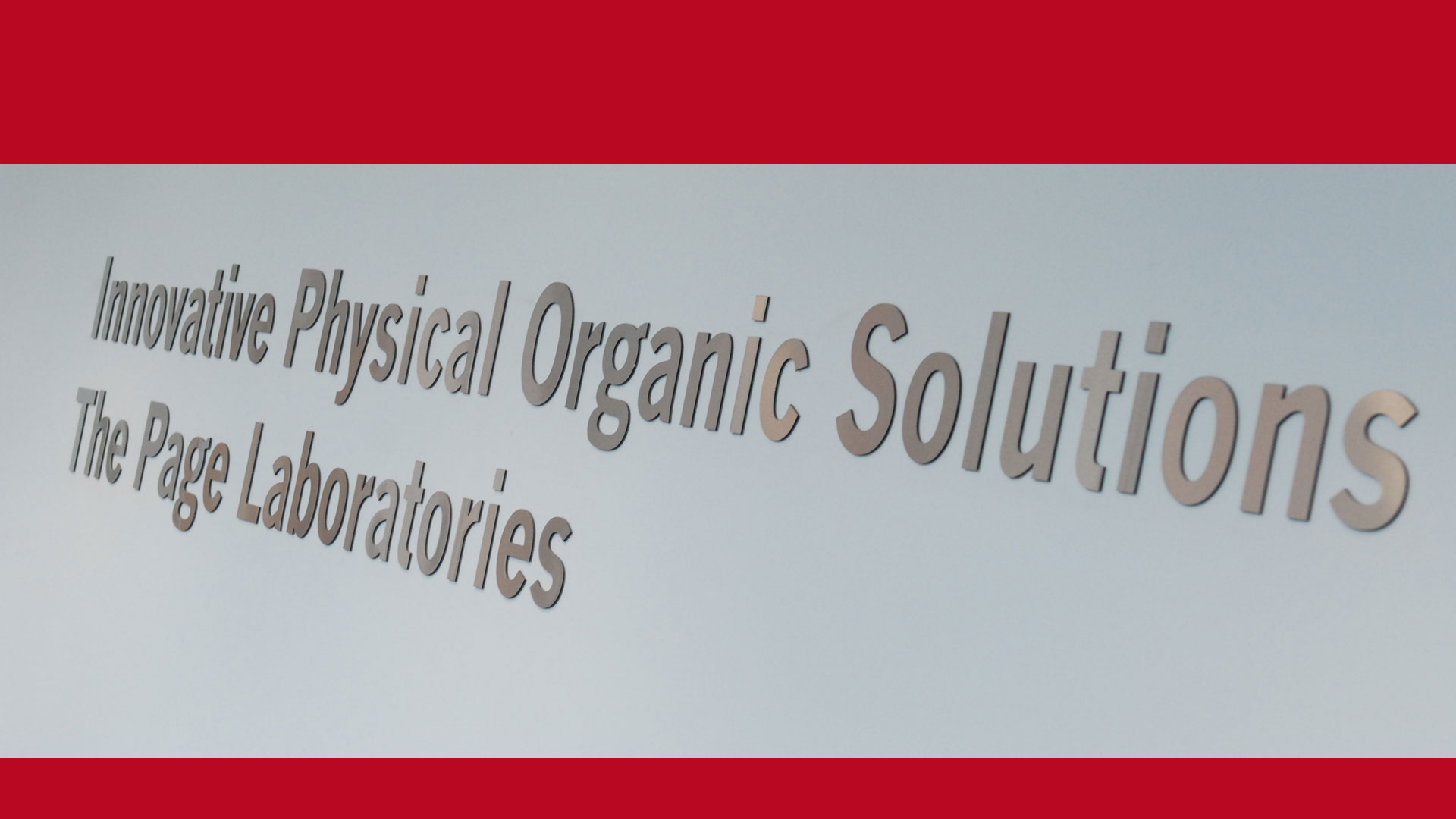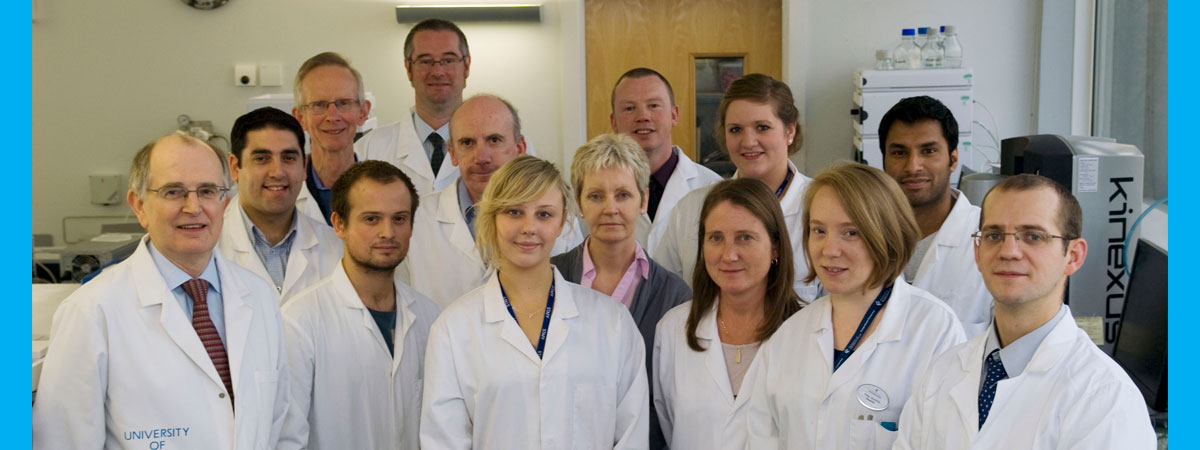
Science research team reaches £10 million funding milestone

IPOS – Innovative Physical Organic Solutions – was formed in 2006
A TEAM of scientists at the University of Huddersfield have reached a major milestone – £10 million in funding since they formed a research group that works closely with industry, carrying out complex chemical analysis.
Named IPOS – Innovative Physical Organic Solutions – the group was formed in 2006 by Professor Mike Page, Dr Nick Powles and Dr Matthew Stirling. Now it has 15 members, including industry-sponsored PhD researchers.
Recent work has included a new method for detecting multiple sclerosis and ways of overcoming resistance to antibiotics. There has also been important work with the food industry, such as improvements to infant milk and a method of analysing animal gelatin.
IPOS works in the purpose-built Page Laboratories – named after the unit’s joint founder, a distinguished chemist who has published over 200 research papers. Professor Page is also a former Deputy Vice-Chancellor of the University of Huddersfield.
The labs have been named a Centre of Excellence by multi-national supplier Agilent and after an initial grant from the European Regional Development Fund, the state-of-the-art equipment has all been purchased with income earned by IPOS, which has now attracted £10 million of research funding.
The unit has worked with more than 250 companies, primarily based in the Yorkshire and Humber region but also large multi-nationals. The IPOS scientists provide expert research and analytical services in such diverse fields as food, agro-chemicals, pharmaceuticals, healthcare, energy production and polymers.
IPOS has also pioneered an apprenticeship scheme, which enables promising young scientists to work in the lab and study part-time for a degree. The unit has also received two awards from the Society of Chemical Industry for its outstanding contributions, particularly to regional industry.
Recent work includes:
- A novel method of detecting multiple sclerosis that has led to a joint project with the NHS and Pinderfield’s hospital in Wakefield to further validate the test in a clinical setting and also to develop additional diagnostic tests for difficult-to-diagnose diseases such as neurological and intestinal conditions.
- A project with Dairy Crest leading to the international adoption of an IPOS method of carbohydrate analysis and improving infant formula.
- Ways of overcoming bacterial resistance to antibiotics and development of probiotic foods for human and animal health.
- An analytical method to determine from which animal gelatin originated. This is important because although gelatin has many applications in the food, medical and cosmetic industries, the outbreak of bovine spongiform encephalopathy (BSE) in 1986 led to restrictions on the use of bovine gelatin for human consumption. There are also restrictions from some religions and cultures banning the consumption of porcine products.
More News
£1.5 million for Material Sciences research
The funding will be used for Material Science and Engineering doctoral projects as part of the Doctoral Training Partnerships
Scientists find blood sample MS detection method
The process will avoid the invasive, painful process of collecting fluid from the brain and spine
£40m metrology research centre officially launched
The Future Metrology Hub, funded by the EPSRC and industry, is the only one of its kind in the UK